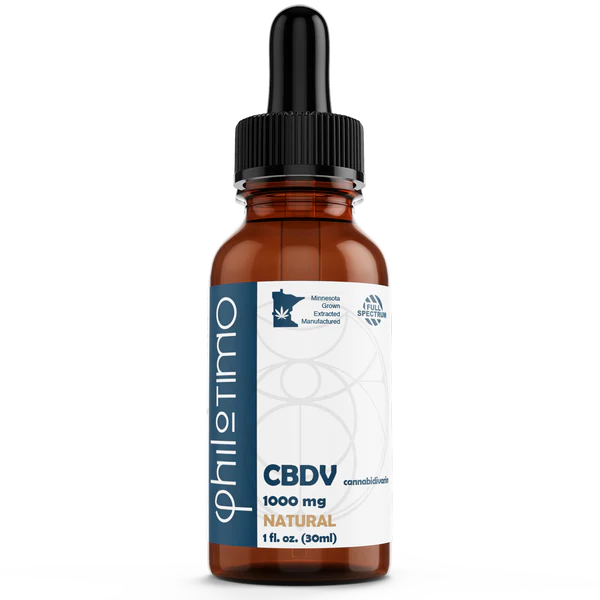
CBG and CBGA's Impacts on the Brain Function and Cellular Health
Cannabigerol has recently turned heads in academia for its versatility and potential impacts on the brain that were previously unknown. We know that THC causes psychoactivity, and CBD makes you feel calm.
Now, research has shown that CBG’s distinct effects on brain function include anxiety regulation, cognitive enhancement, and interestingly enough, cellular modulation.
Recent findings highlighted its potential impact on these areas and even complex conditions through its interaction with a cellular channel called TRPM7. It seems like CBG holds significant promise.
CBG and It’s Transformation From CBGA
CBGA is a foundational precursor that enables many cannabinoids. CBG stands out as a key derivative among these.
During the growth of the cannabis plant, CBGA transforms, branching off into well-known cannabinoids like THC and CBD. But this chemical process leaves CBG in relatively low concentrations in mature plants.
However, the production of cannabis strains high in CBG has been made possible by recent developments in selective breeding. Surprisingly, it is also linked to TRPM7 inhibition. The implications are endless. It has ramifications for diseases like cancer and stroke and can treat problems much beyond stress, but that area is still subjected to scientific scrutiny.
CBG's Interaction with TRPM7 and Implications for Cellular Health
TRPM7 protein impacts cell growth and survival. These are some of the key processes in diseases like cancer and stroke. CBG could influence various cellular functions Through TRPM7 inhibition to reduce the progression of these complex diseases.
CBG targets TRPM7’s kinase domain. It’s responsible for regulating its activities. The interaction between CBG and TRPM7 is rarely random. It involves intracellular magnesium and calcium. This cannabinoid can influence TRPM7’s role in cell dynamics.
These Inhibiting effects can curb excessive cell growth or migration that are linked to disease progression in specific conditions, including:
- Stroke: Stroke-induced cell damage is partly driven by calcium influx, an area where TRPM7 plays a role. CBG’s inhibition of TRPM7 might, therefore, shield brain cells from such damage, providing a potential therapeutic angle for stroke recovery.
- Cancer: Cancer cells often show irregular TRPM7 activity, allowing for uncontrolled growth and spread. By limiting TRPM7, CBG could potentially slow down these processes, offering a new angle for cancer therapy.
Kidney Disease: TRPM7’s dysregulation has been observed in kidney ailments, and with CBG’s effect on this channel, researchers are optimistic about its application in renal health support.
CBG's Effects on Stress, Anxiety, and Cognitive Ability
Researchers studied adult participants on CBG’s impact firsthand. They administered a single 20 mg dose of hemp-derived CBG. Each participant underwent various assessments to gauge mental and physical impacts.
- Enhanced Stress Management: People who received CBG reported diminished stress levels, showing its pre-stress calming effect. Its impact didn’t persist during the stressor, but CBG enhanced resilience to general, everyday pressures.
- Anxiety: Participants reported a notable decrease in anxiety following CBG consumption, a reduction of 26.5%—markedly higher than the placebo group’s 22.5%. This calming effect suggests CBG’s potential for managing daily stress without significant side effects.
- Absence of Cognitive Impairment: CBG demonstrated no impairment in cognitive or motor function. Participants reported no intoxication or adverse mental effects. That’s why it’s an attractive alternative for stress and anxiety management.
- Memory and Cognitive Boost: Users outperformed their peers on verbal memory assessments. It hints at its potential to sharpen cognitive abilities, particularly in memory recall. Such enhancement in verbal tasks highlights CBG’s capacity to support mental clarity and focus, suggesting it may play a valuable role in cognitive health.
- Minimal Adverse Effects: Beyond cognitive advantages, CBG demonstrated a reassuring safety profile for regular use. They reported only minor physical side effects, with no instances of dry mouth or alterations in appetite. It reinforces CBG’s reputation as a gentle and tolerable compound, making it an appealing choice for those seeking mental well-being without the burden of significant adverse effects.
Dosage, Safety, and Expanded Studies
Although the new trial offers strong evidence, it has drawbacks. All individuals were healthy adults with a history of cannabis use, and the sample size was limited.
Further research into other amounts is necessary because the single 20 mg dose might not represent the ideal therapeutic range for everyone.
Although they were not examined in this study, variables including food and lifestyle may possibly have an impact on CBG's effectiveness.
Future Research Directions
- Clinical Trials in Specific Populations: Expanding trials to include participants with diagnosed conditions—like anxiety disorders, cancer, or kidney disease—would provide a clearer understanding of CBG’s therapeutic potential in these areas.
- Optimizing Dosage: Determining the most effective dose of CBG for anxiety, cognitive support, or disease management remains an important focus.
- Interactions with Other Cannabinoids: Researching how CBG might counteract or complement THC’s psychoactive effects could lead to balanced cannabinoid formulations.
- Long-Term Safety: While initial findings are promising, long-term studies are essential to confirm CBG’s safety and efficacy as a regular supplement.
CBGA As A New Path in Mental and Cellular Health
CBG has potential for treating anxiety, improving memory, and potentially affecting illnesses where TRPM7 dysregulation is a contributing factor because it targets both brain and cellular health.
This ongoing study might prove revolutionary for Crested River, a proponent of cutting-edge cannabinoid-based lifestyle.
CBG provides a glimpse into the larger field of cannabis treatments, where knowledge of lesser-known substances may yield useful instruments for managing mental and physical health.
As research progresses, the potential of cannabinoids like CBG might transform traditional methods and include natural alternatives with extensive advantages into everyday health routines.






Leave a comment
This site is protected by hCaptcha and the hCaptcha Privacy Policy and Terms of Service apply.